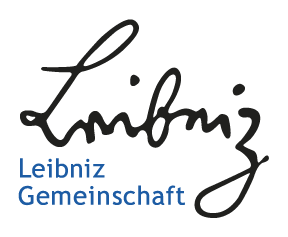From augmented reality dinosaurs to deep fake CCTV: Artists and startups using data to tackle misinformation challenges
How artists and start-ups are using data to fight disinformation: The MediaFutures initiative presents 24 new projects in which start-ups, small and medium-sized enterprises and artists work together to develop innovative ideas to fight disinformation by using data.
MediaFutures, the European data innovation hub bringing together startups, SMEs and artists to solve challenges in the media industry, has today announced 24 additional new projects to join its startup and artist support programmes. Projects receive funding, mentoring and training to develop innovative ideas to tackle misinformation using data. The MediaFutures programme has three programmes: “Artists for Media”, an artist residency, “Startups for Citizens”, a startup accelerator, and “Startup meets Artist”, a unique programme that supports artists and startups to work together on one project. 5 projects join the artist residency programme, receiving up to 30,000 Euros and 9 startups and 10 collaborative projects between startups and artists will receive 5,000 Euros and one month to develop their idea. They will then have the opportunity to pitch and win one of seven places on the next stage of the programme, receiving up to 80,000 Euros.
“In a world of increasing complexity and tension, we are reminded, once more, of the significance of access to factual information that would enable us to make the appropriate and informed decisions. At MediaFutures, we are proud and thrilled to welcome our second cohort. Our cohorts are the stars of our programme, and we are looking forward to seeing all teams grow and thrive via our MediaFutures acceleration and residencies”, says Alexandra Garatzogianni, Coordinator of MediaFutures, Head of Knowledge and Technology Transfer at TIB and Coordinator of EU Projects at Leibniz University of Hannover.
Artists for Media – projects in the artist residency programme
- Edit Wars is an interactive project from four data journalists and artists in Georgia and Germany. Their work analyses media publications accompanying the growing militarization and manipulation of mass consciousness in Russia, and addresses the use of aggressive narratives in the government-controlled media that isolate public perception from the real state of affairs.
- How many heartbeats to send a love email? is an artwork by artist Kasia Molga, which offers a new narrative about energy consumption and digital data through an interactive experience engaging our own body energy. This artwork intends to create awareness on digital pollution caused by infobesity and fake news, and to question our intimate relationship with online data.
- Invisible Voice is an artist-led project by Mark Farid, creating a free browser plugin empowering individuals to make informed decisions about the websites and companies they use. A browser button, when clicked, will open a pop-up, including: the owners, parent company, any affiliated companies, political leanings, revenue, assets, employee numbers, inclusivity and diversity statistics, environmental practise, cheap labour, and more information on the company’ practice.
- Synthetic Identity Speculations is a participatory artistic research project from Michael Wallinger and Blaukind, that monitors individual synergy effects of social network algorithms and their impact on body images. The research will begin by exploring the potentials of synthetic data and data scraping to trace and cross-reference the impact of algorithmic agency on aesthetics, iconography, choreography and authenticity.
- The more the better (two truths and a lie) is a multimedia installation by Hungarian-American artist Mihály Kornai exploring the relationship between foreign languages, mother tongues and trustworthiness. Combining experimental documentary, video art, spatial audio, and assemblage, the 100-channel and 100-language installation uses the children’s game of ‘two truths and a lie’ to blend truth and fiction beyond the point of discernibility.
Startup for Citizens – projects in the startup accelerator programme
- B-ray (or, Bot-ray) is created by a team of researchers, data scientists, designers, and entrepreneurs, performing an X-ray of Twitter networks to isolate the noise caused by 33% of content and 66% of URLs shared solely by bots.It monitors all activity related to an account, and provides high-quality social media analytics (for businesses), and exposes inauthentic behaviour in online public discussions (for citizens).
- Citizens Economy Dashboard comes from the UK charity Economy, that puts communities at the heart of making sense of economics. They will employ participatory methods to work with the public to re-envision the way economic data is reported in the UK. The project will hold space to challenge what data is considered ‘important’ and explore how we contextualise its relevance to people’s lives.
- Cut the BS out is a project by Dutch deeptech startup CADChain, creating a Bias Score (BS) algorithm to address gender inequality within textual data sources and give ownership to the women who create the underlying datasets or algorithms. Their algorithm will serve as a stamp of approval for a company’s data usage and provide transparent insights (while respecting privacy) in their BS.
- Factiverse is a B2B tool with a focus on fact-checking and credibility. It will equip journalists and content creators with patented AI-driven solutions that help them to do their best work faster and prevent the spread of misinformation. It provides automated detection of misinformation and a credibility check for any online information by using cutting-edge Artificial Intelligence and Natural Language Processing.
- Ochi is an app by Ukrainian science media platform Kunsht, that turns screen time into learning media-literacy time. There are an array of games and tests on topics like hate speech, echo chambers, fakes, work of algorithms, gatekeepers, trolling, stereotypes, cognitive biases, and more. All alongside a personal dinosaur in augmented reality, sustained by regular involvement in the app which develops together with the child’s knowledge.
- Our Tribune aims to build a space for all those who seek to be an active part of the political life of the society. Its mission is to increase civic engagement by creating an independent media outlet that blends together high quality creator content with open government data. Creators and consumers will be empowered to collaborate, and more open and direct connections will be created between institutions and consumers.
- Polltix is a Lithuanian civic tech start-up that will build a widget to enable media outlets to poll their readers directly on their website and get representative results. The widget will also feature a disinformation index which will show the extent to which the public opinion has been affected by it, empowering the media to produce more content addressing the most impactful disinformation narratives, contributing to an increase in the public’s resilience to these narratives.
- Ptolemy is a map app for tourists, from cartographer Nick Lempesis and tourism specialist Simone Vaccari, focusing on the cultural, historical and artistic heritage of destinations in Europe. Leveraging modern web technology and linked open data, and the experience of local storytellers, it aims to offer deeper travel experiences, easier access to quality information and the discovery of places through multimedia and offers that leave travellers with something memorable.
- Relevanzreporter Nürnberg is an independent local newsroom from Nürnberg, Germany, delivering future and solution oriented journalism together with the citizens of Nuremberg. With the help of MediaFutures they are starting a community research project, combining GPS-technology with community-driven local journalism to create a positive impact for society, politics, the environment and overall – to bring back trust in media, through being part of it.
Startup meets Artist – project in the collaborative programme for joint startup and artist teams
- Doppelgänger is a collaboration between documentarist Michael Madsen and deep tech company Kaspar, targeting issues of mass surveillance, specifically CCTV systems and current GDPR regulations across Europe. Doppelgänger aims to draw into question the neutrality and trustworthiness of images recorded by a machine in an age where deep fake technology is widespread.
- EPIPHANY is a project from a team of AI and machine learning scientists, engineers, art writers/ curators and artists, that leverages artificial intelligence based on machine learning to create realities that do not exist and push the public to question what they know. Through a narrative and fine-print that draws on the avant-garde of Surrealism, it explores the production of fake news and the way we accept a fact as real, to finally induce a realisation of the truth.
- Factinsect, is an AI-based automated fact checking tool, with a simple traffic light system which provides readers with information about the credibility of their news content, to mitigate the harms of fake news. The audio-visual artwork changes depending on the trustworthiness of the article and the emotions of the reader. Its goal is to show the positive effects of the Factinsect via art, and to explore the possibilities of encompassing new technological advances in artistic creations.
- Maya is a project developed by Italian SME WPWEB and dancer and choreographer Matilde Demarchi, designed to raise public awareness of the concepts of disinformation and misinformation. It will deliver an interactive live performance mixing dance, projections and advanced techniques of AI, with audiences subjected to a series of claims: some blatantly true, some blatantly false, and still others that could be both true and false, depending on the context.
- mdAID is a project by artists Fotis Pehlivanidis and Sotos Anagnos, and startup IntelliDech. They will build: a fake news visualisation engine, free to use and publicly available; a community platform to tackle misinformation, allowing citizens, artists and journalists to openly share their views, material and expertise to fight against fake news spread; and an AI-powered Data API to help journalists and publishers identify fake news before proceeding with publication.
- MUMIDIS is an open online space by Ukrainian research collaboration uTrigg designed to educate people about methods of brainwashing with disinformation. Using realistic visuals (a 3D city) and audial (sonic art) experiences, it will engage people in a gamified way to guess false and trustful news, with emotion AI technology, to measure and compare the emotions of readers while they consume trustworthy or fake news.
- Museum of Re:Information is an interactive multi-platform project from Concept Studio and visual artist Momchil Alexiev. It features a series of newsgames and digital artworks built within a virtual space. It defines Re:Information as the process of recontextualizing opposing points of view through a game environment in order to raise awareness and empower individuals to critically evaluate the information they consume.
- SciArt Checker is the result of a collaboration between Opscidia startup ‘Science Checker’ and a science comedy show group specialised in theatre applied to scientific mediation. The project offers a new way of representing scientific information through theatricalisation. The screen of the SciArt Checker application turns into a scene where avatars appear to challenge and guide the user to offer them a unique experience.
- The Oracle Network is an artwork by a team composed of one full-stack developer, one artificial intelligence researcher, a visual artist with a background in philosophy and anthropology and one game artist. It begins with urban augmented reality (AR) art, spread around the city that leads, like a treasure hunt, to the Central Hub where visitors interact with artificial intelligence art installations, which gradually introduce the viewer into the abstract tech space of fake media.
- Time-lapse Migration is a digital tool from startup La Tempesta and artist team Varvara&Mar, to counter misinformation and disinformation on the refugee phenomenon in Europe, by giving a wider context and different lights on the migration fluxes, their motivations, and problems, but also past episodes of forced migration in Europe and their contributions to European culture. The idea is to translate the refugee’s stories into visual language using AI.
About the Media Futures project
The three-year project MediaFutures is delivered by a consortium of 10 organisations from six European countries: Leibniz Universität Hannover (coordinator), King’s College London, Institute for Research and Coordination in Acoustics/Music (IRCAM), Centre Pompidou, Universität LUISS, Zabala Innovation Consulting, Next Media Accelerator, Eurecat Technology Center of Catalonia, Open Data Institute, DEN Institute and KU Leuven. It is funded by the European Commission under the Horizon 2020 framework “Big Data Innovation Hubs programme”. MediaFutures is part of the S+T+ARTS ecosystem.
Contact person for the MediaFutures project is Alexandra Garatzogianni, Coordinator of MediaFutures, Head of Knowledge and Technology Transfer at TIB and Coordinator of EU Projects at the L3S Research Center.
Links to further information on the MediaFutures project
Further information on the individual MediaFutures projects: https://mediafutures.eu/projects/
- Projects, artists and start-ups from the first funding round
- For more information about the funding programmes
- To the MediaFutures projects on YouTube
For more information, please contact: info@mediafutures.eu or follow MediaFutures on Twitter, LinkedIn and on Instagram.
Leitung Wissens- und Technologietransfer, Koordinatorin von EU-Projekten // Head of Knowledge and technology transfer, Coordinator of EU Projects
Stellvertreter Kommunikation und Verbreitung PLATOON // Communication & Dissemination Deputy
Project Manager & Business Developer





